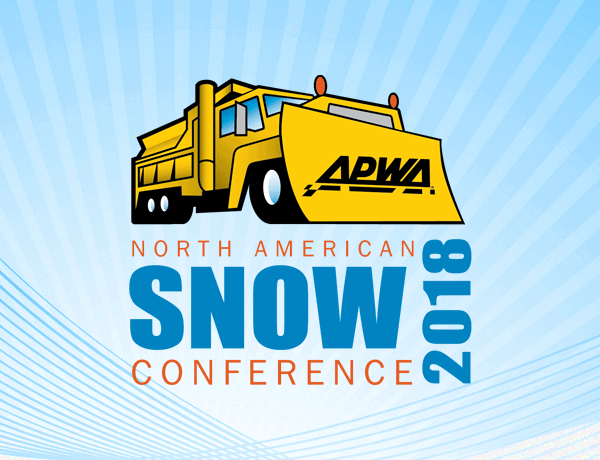Video
The APWA Reporter Series “How Did They Do That?” comes to life in this fast-paced presentation format where members of the Leadership and Management Committee, The LMC Knowledge Team and Other authors of the series, discuss the projects and innovative techniques they have employed in their agencies.
Read MoreThe City of Durham, North Carolina was faced with 50 subdivisions with infrastructure (streets, sidewalks, water, storm sewers, and sewers) in various stages of completion because of the Great Recession’s impact on developer corporations. The City was able to leverage various policies, partnerships, and relationships to complete work in 90% of the subdivisions with no cost to the city and residents and with profit to the new developers that stepped in to assist with the recovery. Attend this session and discover: • how to anticipate economic conditions that could lead to failed developments, • facilitate and negotiate public/private partnerships to complete unfinished infrastructure, • develop policies and procedures to monitor and prevent future failed developments, • anticipate and mitigate budgetary impacts of development plans.
Read MoreThe Transportation Research Board’s NCHRP-20-108 “Creating and Sustaining a Culture of Innovation” document provides guidance to organizations that want to build a thriving innovation ethos over the long-term. Explore how to use self-assessment practices to determine where your agency falls along the continuum of innovation efforts. We’ll also explore the five themes that are necessary to build and sustain a culture of innovation: leadership, communication, empowerment, recognition, and measurement.
Read MoreThe panel will focus on the process of developing maintenance strategies using CMMS and GIS spatial analysis tools and applying criticality scoring to asset decision-making.
Read MoreAcross the nation, higher rents and a shortage of low-income housing are increasing homelessness and challenges to public works departments in keeping the public-rights-of-way safe and clean. The City of Berkeley, California, activated their emergency operations center in the winter of 2017 to facilitate the creation an emergency homeless shelter on city property. The City of Alameda, California, has implemented a comprehensive action plan to address an increased number of homeless encampments in the community. This joint presentation will discuss how this issue affects public works and steps that are being taken.
Read MoreThis session will include presentations from Norway and Australia about 21st Century solid waste management technologies, practices, and advancements. • Dulverton Waste Management operates 60,000 tonne per annum landfill and a 30,000 tonne per annum compost facility in northwest Tasmania, Australia. (1 metric tonne = 1.10231 US tons.) In 2017, the facility claimed the Waste Management Association of Australia’s Award for Landfill Excellence. This presentation will note the challenges overcome to turn this business, with many shortcomings, around to one that achieved this prestigious award. • Does this sound like science fiction to you? The City of Bergen, Norway uses a pneumatic waste collection system (PWCS) to collect and dispose of solid waste. The waste is disposed of and transmitted pneumatically in underground pipes beneath city streets. The construction of PWCS can be combined with other infrastructure projects installing fiber optics or water/sewer projects.
Read MoreEveryone brings their own experiences and perspectives to the job of snow and ice control. Enjoy this story of how the speaker’s previous work experiences shaped his perspective on public service and leadership, including a safety before service philosophy.
Read MoreIn today’s connected world, weather information can be accessed with a click of a button. But what does it all mean? Standard weather forecasts deal in percentages of chance and ranges of accumulation. This session will offer you tips for understanding the weather data available to you and how to improve decision-making regarding allocation of materials, equipment, and staff for potential winter storms.
Read MoreWhen disasters and emergencies occur, public works personnel are among the first to respond. Public works provides traffic control and debris management; assists with rescue, evacuation, damage assessment, infrastructure repair, and service restoration. Attend this session to examine what agencies should do to have the resources, training, policies and procedures to be ready and responsive for all-hazards incidents. We will discuss responsibilities and unique capabilities of public works in emergencies and planned special events. Public works must have a seat at the table with police, fire, and public health when it comes to planning, training, exercising, and actually managing incidents.
Read MoreLet’s be honest, keeping snow and ice off the streets and highways is not an easy task. In fact, it’s rather complicated! Anyone doing winter maintenance knows the pressures you face to provide higher levels of service and the ongoing effort to train employees on shrinking budgets! With so many ideas and resources out there, which ones are going to be most valuable for you, your staff and your agency? This session will help you identify and discover numerous resources and training opportunities to begin transforming your agency’s maintenance operations. Learn from other North American snow professionals who have done those innovative things, screwed them up, and learned from their mishaps – so you don’t have to make the same mistakes we did!
Read More